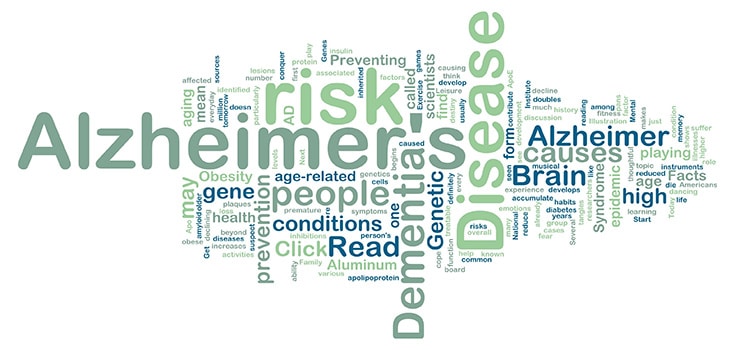Causes of Alzheimer’s Includes Stress – Study May Show for First Time

According to the Alzheimer’s Association, 5.4 million Americans have Alzheimer’s disease, and is the sixth leading cause of death. But unlike heart disease, stroke, and other leading causes, no link has been established between Alzheimer’s disease and stress. But one study out of the U.K. hopes to discover if stress is among the many causes of Alzheimer’s.
Is Stress Among Causes of Alzheimer’s?
The study will be conducted at the University of Southhamptom and is sponsored by the Alzheimer’s Society, a charity that works to help those diagnosed with dementia and Alzheimer’s. The scientists hope to determine whether or not there is a concrete link between Alzheimer’s disease and stress.
“All of us go through stressful events,” said lead researcher Professor Clive Holmes. “We are looking to understand how these may become a risk factor for the development of Alzheimer’s.”
If this study establishes a link between chronic stress or stressful events and the progression of Alzheimer’s, it could be another argument for today’s frazzled, average adult to find some stress-relieving outlets.
According to the study’s research manager, Ann Corbett:
“The study will look at the role chronic stress plays in the progression from mild thinking and memory problems—Mild Cognitive Impairment—to Alzheimer’s disease…We feel this is a really important area of research that needs more attention. The results could offer clues to new treatments or better ways of managing the condition. It will also be valuable to understand how different ways of coping with stressful life events could influence the risk of developing Alzheimer’s disease.”
Scientists plan to evaluate 140 people over the age of 50 diagnosed with mild cognitive impairment, along with a control group of 70 people with no cognitive problems. They will measure their stress levels and stressful events, as well as their cognitive responses over an 18 month period. Blood will be tested throughout that time for the stress hormone cortisol.
According to the BBC, one related study involving 1,500 women over 35 years of age found that a 65% higher chance of developing dementia occurred when the female test subjects were exposed to repeated periods of stress during their middle age. Further showing that stress could be among causes of Alzheimer’s, other Scottish research also showed that memory problems could be the result of hormones released in response to stress.
While is is important to know the causes of Alzheimer’s, knowing how to treat, prevent, or slow the progression of the disease is also important. Even though Alzheimer’s is currently the only cause of death listed in the top ten for which there is ‘no cure’, research shows that simple dietary changes can be great for preventing the disease. For example, the many
There is a good chance that like so many other diseases, scientists will find a positive link between stress and Alzheimer’s. Here’s hoping that if they do, people will make the relatively easy lifestyle changes to reduce their stress levels rather than seek out a prescription drug to do it for them.
Additional Sources:

Having cared for my Mother during her Alzheimer's walk to the end, it was very evident to me that stress was a trigger for her Alz days. By reducing stress in her life, removing inflammatory foods from her diet (processed foods, sugars, bad oils, etc.), and seeing to it that she got plenty of exercise, we were able to manage the Alzheimer's and really enjoy our time together. Towards the end of life, when pain and panic took over, the stress became unbearable for her. Hospice prescribed morphine and Ativan, which did not help her pain and panic, and left her in a vegetative state. At that point, in desperation, I started giving her a medical marijuana tincture under her tongue, which completely removed the pain, the panic, and the resulting stress, and allowed me to take her off the pharmaceutical drugs. She lived another eight months, quite comfortably, relatively stress free and remarkably lucid for an Alzheimer's patient. Yes, stress was most definitely a trigger, and managing the stress was the greatest antidote. Thank you for your continued research into Alzheimer's, your reports are very valuable.